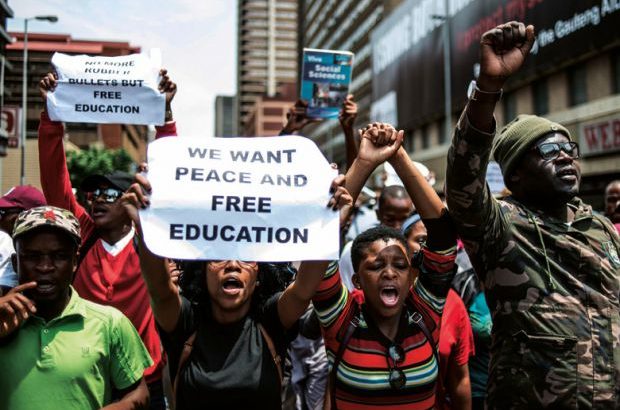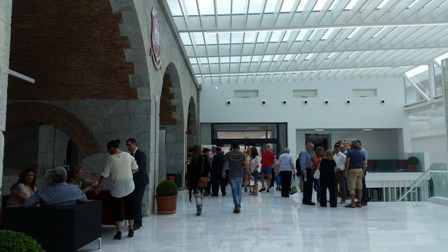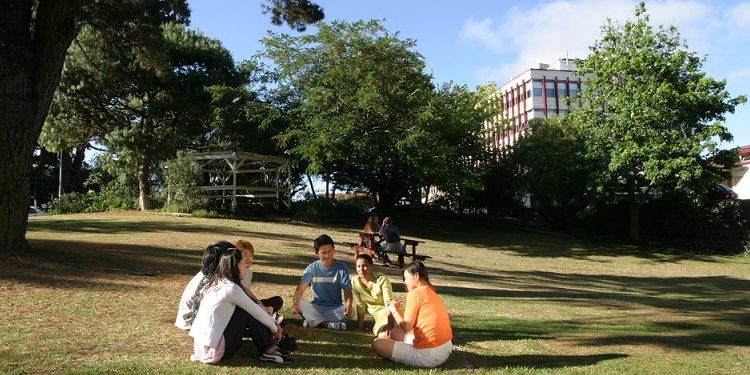Australia/Noviembre de 2016/Autores: John Ross y Julie Hare/Fuente: Inside Higher Ed
RESUMEN: El valor de la educación internacional para Australia ha superado los 20.000 millones de dólares australianos (14.800 millones de dólares EE.UU.), lo que confirma la posición de la industria como la tercera fuente de ingresos del país y la mayor exportación de servicios. Nuevas cifras de la Oficina Australiana de Estadísticas muestran que la educación internacional ha eliminado un cóctel de problemas -incluyendo un alto dólar australiano, administración de visas oficiosas y ataques contra estudiantes extranjeros- para publicar un nuevo récord de ingresos.Los expertos dicen que el resurgimiento podría acelerar, si la exitosa campaña presidencial de Brexit y Donald Trump llega a los dos mayores competidores de Australia. Las cifras publicadas la semana pasada mostraron que el crecimiento en el número de estudiantes chinos matriculados en instituciones de Estados Unidos el año pasado fue el más bajo en una década.
International education’s value to Australia has surged past 20 billion Australian dollars ($14.8 billion U.S.), confirming the industry’s status as the country’s third-biggest earner and easily the largest export of services.
New figures from the Australian Bureau of Statistics show that international education has shrugged off a cocktail of problems — including a high Australian dollar, officious visa administration and attacks against foreign students — to post a new revenue record.
Experts say the resurgence could accelerate, if Brexit and Donald Trump’s successful presidential campaign stem student flows to Australia’s two biggest competitors. Figures released last week showed that the growth in the number of Chinese students enrolling at U.S. institutions last year was the lowest in a decade.
Australia’s international education exports totaled 20.3 billion Australian dollars ($15 billion) last financial year, an 8 percent rise compared with 2014-15.
The figure includes fees and onshore spending on goods and services such as food and accommodation, as well as royalties, consultancies and other related services.
Most of the income came from foreigners studying at universities, with the higher education sector attracting about 14 billion Australian dollars ($10.4 billion).
Vocational training institutions earned about 3 billion Australian, English language colleges 1 billion and schools 800 million ($2.2 billion, $740 million and $592 million, respectively).
Universities Australia, which represents institutions, said international education helped sustain Australian living standards, supporting more than 130,700 jobs.
It said more than 320,000 students from 130 countries were currently studying in Australia’s universities.
“Through the exchange of students on a grand scale, we’re forging relationships that underpin our future diplomacy, trade, business links, cultural insight and personal connections,” said Universities Australia’s chief executive, Belinda Robinson.
Meanwhile, newly released government data reveal that Australia’s most prestigious universities are continuing to increase dramatically the number of international students they enroll, largely to help cover the costs of research.
While the national average was just shy of 20 percent international student enrollments, last year Melbourne University enrolled 18,384 overseas students — or 31.2 percent of its total enrollment, up from 16,140 the previous year.
Melbourne was followed by the Australian National University, with 28 percent international students.
The University of Sydney, University of New South Wales, Monash University, University of Technology Sydney and RMIT University all had more than one in four students from overseas.
Previous research has demonstrated that international students not only subsidize the teaching of domestic students but also keep afloat the multimillion-dollar research efforts of major universities.
However, Melbourne’s overseas student enrollments pale in comparison with Federation University in Ballarat, where 42.5 percent of students come from overseas, and Gold Coast-based Bond University, with 41.3 percent.
Local undergraduate students contribute 10,440 Australian dollars ($7,729) a year to study business. For international students, fees to study for a business degree next year range from 19,920 Australian dollars ($14,746) at the University of New England to 39,264 Australian dollars ($29,065) at research-intensive Melbourne University.
Phil Honeywood, chief executive of the International Education Association of Australia, warned that any increase in students deciding against the U.S. or Britain could be tempered by increased competition from Canada, China and New Zealand.
Fuente: https://www.insidehighered.com/news/2016/11/23/international-education-20-billion-industry-australia












 Users Today : 37
Users Today : 37 Total Users : 35404660
Total Users : 35404660 Views Today : 44
Views Today : 44 Total views : 3334254
Total views : 3334254